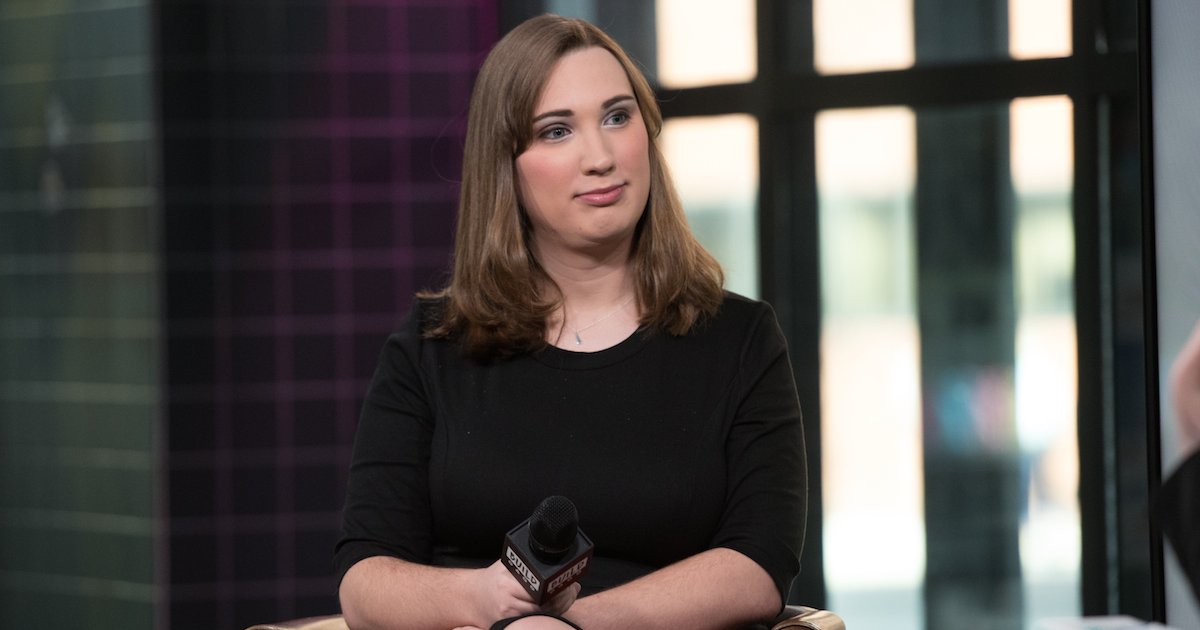Caregivers Make a Difference
- November is National Caregivers Month.
- Senator-elect Sarah McBride, 30, cared for her husband as he battled oral cancer; he passed away in 2014.
- Caregivers play a very important role in someone’s cancer journey.
In September of 2013, Cray was diagnosed with oral cancer in his tongue. A month later, he had an extensive 12-hour surgery to remove part of his tongue and eliminate the cancerous cells; chemotherapy and radiation followed the procedure. His tongue was reconstructed with tissue from his arm, and as a result he had to relearn how to talk and eat. However, the pain in his mouth continued. In April 2014, Cray was initially declared in remission.
Read MoreThose plans came to a halt just a few months later, in July 2014. Cray developed chest pain and a cough that wouldn’t go away. They were told that his cancer had returned, and spread to his lungs. Despite the devastating prognosis, McBride and Cray turned something tragic into something beautiful. Cray proposed to McBride after oncologists told him that he likely only had about a year left to live. However, that year expectancy quickly got slashed when doctors informed the couple that one of Cray’s lungs was failing before he was even able to start chemotherapy.
They refused to waste any more time, and walked down the aisle in August 2014. Just two weeks after exchanging their vows, Cray passed away at 28-years-old. “There are many lessons I take from his passing, but the biggest is that though we may feel invincible, we never know how much time we have left,” McBride writes. “Life is too short for outdated dogmas to impede our own pursuit of happiness…Despite this tragic end, it's clear that Andy lived with more purpose and realness in 28 years than most find in 60 or 80. He loved and was loved.”
Doug Wendt, who lost his wife to cancer, says you don’t have to “move on” after experiencing loss
HPV’s Link to Oral Cancer
It’s unclear what the cause of Cary’s cancer was, but recent studies have linked the human papillomavirus (HPV), which is an extremely common virus spread by skin to skin contact, to a large number of cancers. This includes oral, anal, and throat, and the virus is responsible for nearly 35,000 cancer diagnoses in the United States per year. Most of the time, the body's immune system naturally clears the HPV on its own and the person never experiences health problems or symptoms. However in some cases, if someone has contracted one of the "high-risk" strains of HPV (there are about 14 'high-risk' strains out of roughly 100 strains total), the infection might linger over a long period of time, ultimately damaging cell DNA and resulting in cancer-causing mutations.
Related: What You Need to Know About the HPV Vaccine Now That Millions More Americans Can Get It
These health issues have a 90% chance of being prevented if young adults are given Gardasill, the HPV vaccine. Although it’s faced controversy, despite scientific evidence proving its effectiveness, experts highly recommend both young women and men get the vaccine to possibly prevent a future cancer diagnosis.
“The HPV vaccines do not cause autism,” Dr. Jessica Geiger, a medical oncologist at Cleveland Clinic Cancer Center, tells SurvivorNet. “There is always a risk of some vaccine-related side effects, local site injection, pain, some redness, some swelling. There are no syndromes such as autism or other neurologic syndromes that have been linked to the HPV vaccines.”
Dr. Jessica Geiger explains why the HPV vaccine is completely safe
Message from Caregivers: Be Proud of Yourself
McBride embodies the type of strong person you need to be while watching a loved one fight cancer. Taking care of someone battling this disease can take a huge emotional toll, but it’s important to realize the work you’re doing is making a huge impact on your loved ones life. Staying positive is extremely important during someone’s cancer journey, and a support system plays a huge role in that.
Justine Almada watched her mother Paulette battle anal cancer, and stood by her side throughout the whole process. Paulette eventually passed away, but it taught Justine an important lessons about how much caregivers make an impact during a cancer battle.
Related: Patrick Dempsey's Advice to Cancer Caregivers: Take Care of Yourself, Too
“What I’d like to say, from one caregiver to another, is you are fucking awesome,” Justine tells SurvivorNet. “It's really difficult, and also really wonderful at the same time. Because you know you're giving your loved one the best chance they have … and I hope you're really proud of what you're doing everyday. ”
Justine Almada, who cared for her mother during anal cancer, shares inspiring message for caregivers
Learn more about SurvivorNet's rigorous medical review process.


